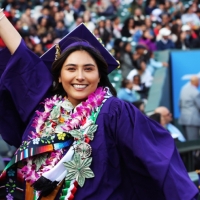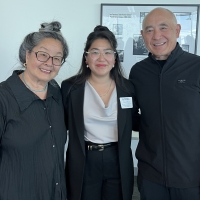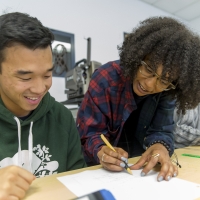Cynthia Grutzik, Ph.D. became Dean of the Graduate School of Education (GCE) in 2018. Prior to her appointment, she served as the associate dean of the College of Education at Long Beach State University, where she supported credential and undergraduate programs, accreditation and assessment, curriculum, outreach, recruitment, and district partnerships.
A former elementary school teacher and past president of the California Council on Teacher Education, Dean Grutzik received a bachelor’s degree in diversified studies from Westmont College, a teaching credential from Fullerton State University, a master’s degree in language, reading, and culture from the University of Arizona, and a Ph.D. in education and information studies from the University of California, Los Angeles.
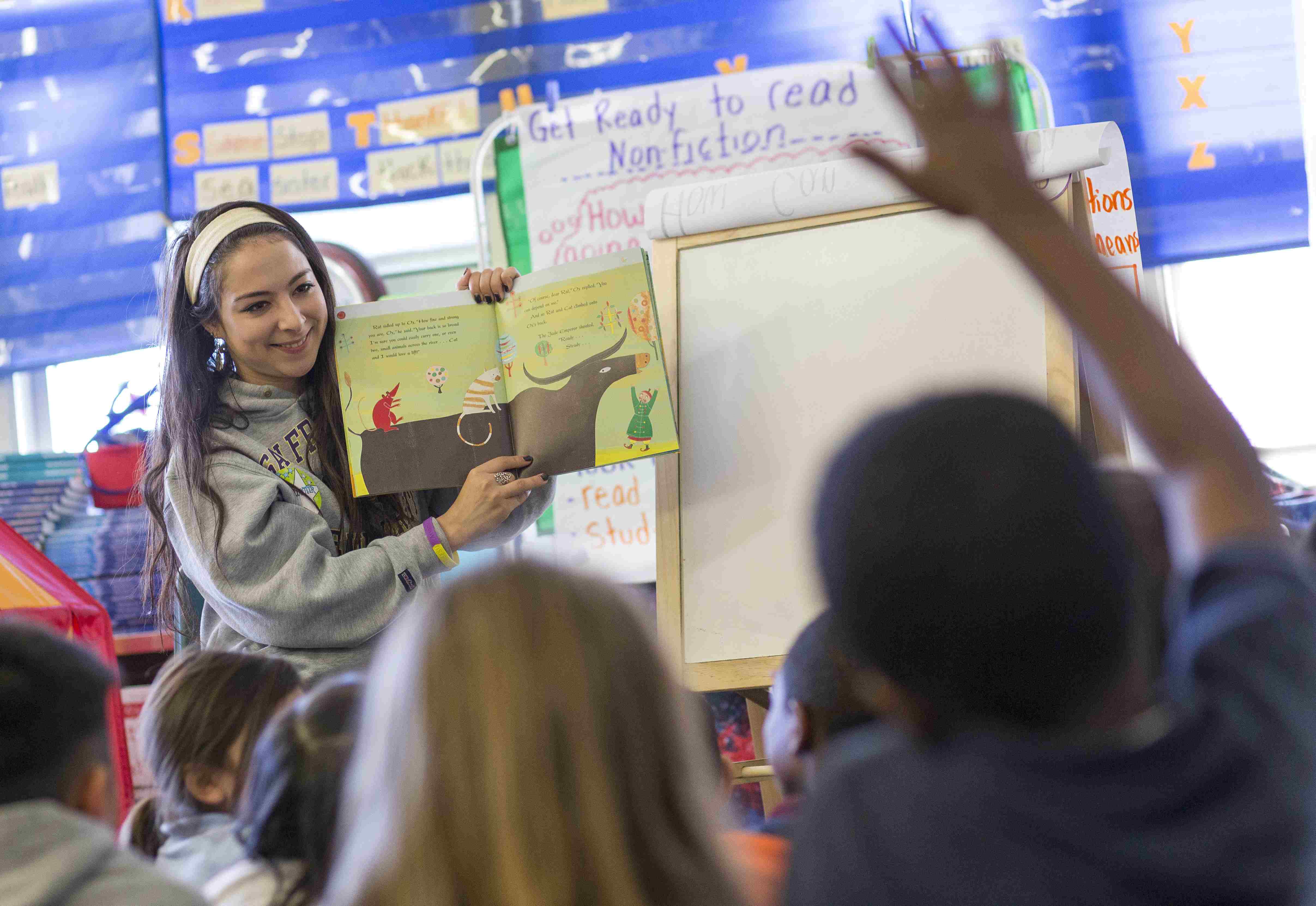
“Our priority is to be the best source of educators for the Bay Area and beyond. We want to be the college where our local districts come for their teachers, leaders, clinicians, and specialists.”
Q: Can you tell us about the Graduate College of Education and your students?
A: The college started as one of the oldest Normal Schools in the state, which became the San Francisco State Teachers College, which then morphed into a California State University (CSU). For many years, it has played a role in preparing educators who become the superintendents, principals, community college presidents, and deans for the region.
GCE gives an opportunity to educational leaders to study and do research and then apply what they’ve learned in the region's schools. Our students come from all over the Bay Area and beyond, so it's a very diverse group. They are committed, dedicated, and interested in learning together.
GCE enrolls about 1,200 students a semester. We teach elementary, secondary, and special education. Our special education department is about 70 years old and is very comprehensive, from early childhood special education to visual impairments, orientation, and mobility, to very low-incidence programs, as well as programs for mild to moderate disabilities and moderate to severe disabilities. We have an undergrad program in Communicative Disorders as well, which has a great impact in the region in preparing students who will be audiologists, therapists, and speech-language pathologists.
We have two doctoral programs – a joint doctoral program with UC Berkeley in special education, and a larger education leadership doctorate program. We also have an education administration program that prepares principals for the area. These students are teachers who want to advance to administration and become system leaders.
“We want our programs to be cutting edge and always examining themselves to get better. We want our faculty to be energized and engaged in local and statewide research conversations. The priorities are for students to experience the kind of learning and teaching that we want them to go out and do.” -Dean Cynthia Grutzik
Q: How does the college remain relevant and respond to changes in the field?
A: Our faculty have a real finger on the pulse of education in the region and are actively working with local districts. A good example is Professor Irina Okhremtchouk. She understood the need for principal preparation and worked to retool and open up that program in our college and make it very accessible. It’s that kind of relationship that allows us to see what is needed.
Then, sometimes, the CSU has statewide or local initiatives to help programs grow. We get some support from the Chancellor's Office – called the Mathematics and Science Teacher Initiative funding – that helps us grow the number of STEM teachers. We do a lot of recruiting through the Center for Science and Math Education, which is housed in SF State’s College of Science & Engineering. We also have support from the Chancellor's Office to grow enrollment in the master's degree program in speech-language pathology. Last year, we doubled the cohort thanks to that support.
We work closely with the San Francisco Unified School District to help them prepare the next group of teachers and educators for the district. We meet with them every month and we work on this a lot.
Q: What are your present and future priorities for the college?
A: Our priority is to be the best source of educators for the Bay Area and beyond. We want to be the college where our local districts come for their teachers, leaders, clinicians, and specialists. We want our programs to be cutting edge and always examine themselves to get better. We want our faculty to be energized and engaged in local and statewide research conversations. The priorities are for students to experience the kind of learning and teaching that we want them to go out and do.
Our goal is to be resourced enough to provide faculty and students with research opportunities. Ultimately, we want the way that we prepare teachers and educators to impact the opportunities for their students, and for those students to advance their own lives and come to SF State for degrees. We have this interesting loop where we are preparing high school teachers who are going to make college readiness real for a bunch of students, who then go on to become communications majors or science majors.
The health and well-being of our professors are also a high priority for me because I know, as an educator myself, it starts with who we are and how we see things, and how energized we are. If our faculty is thriving, then the students benefit from researching with them. I'm looking forward to seeing our relationship with San Francisco Unified really solidify. We've been working with them for a long time, and we are learning that we have a lot of programs we can work together on.
The other priority that makes all of that possible is the community that we're building in the college, the kind of shared governance structures that I've been working to develop over the last few years, like the Dean’s Council for student leaders. We have a faculty council and a staff council, and we've got ways of meeting as a college that helps us move our initiatives and priorities forward. That kind of community-building also allows us to be the kind of college that has those conversations we've committed to around race, equity, and systemic oppression.
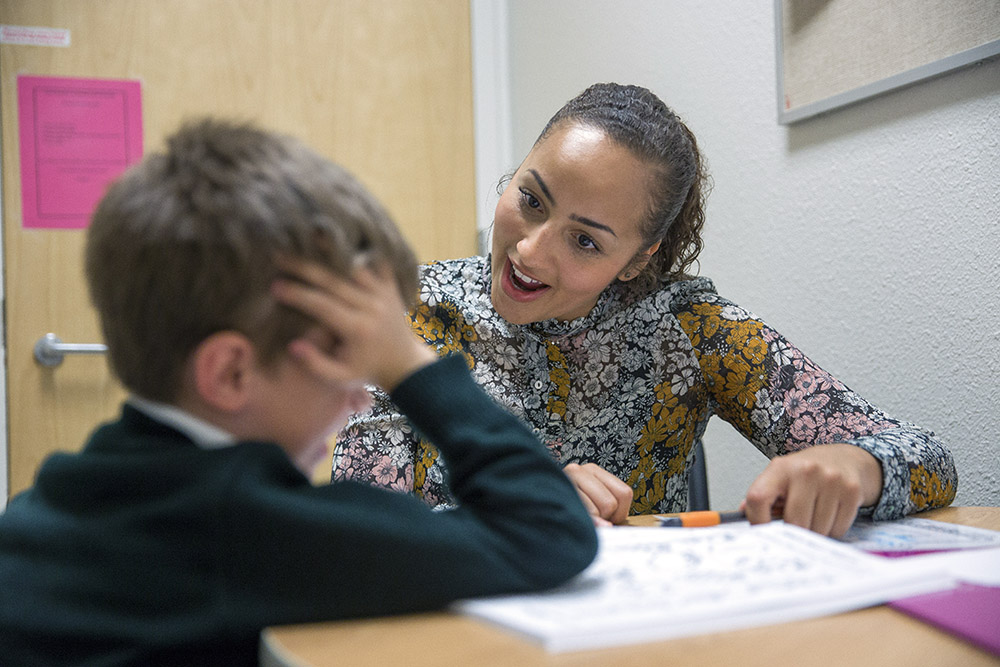
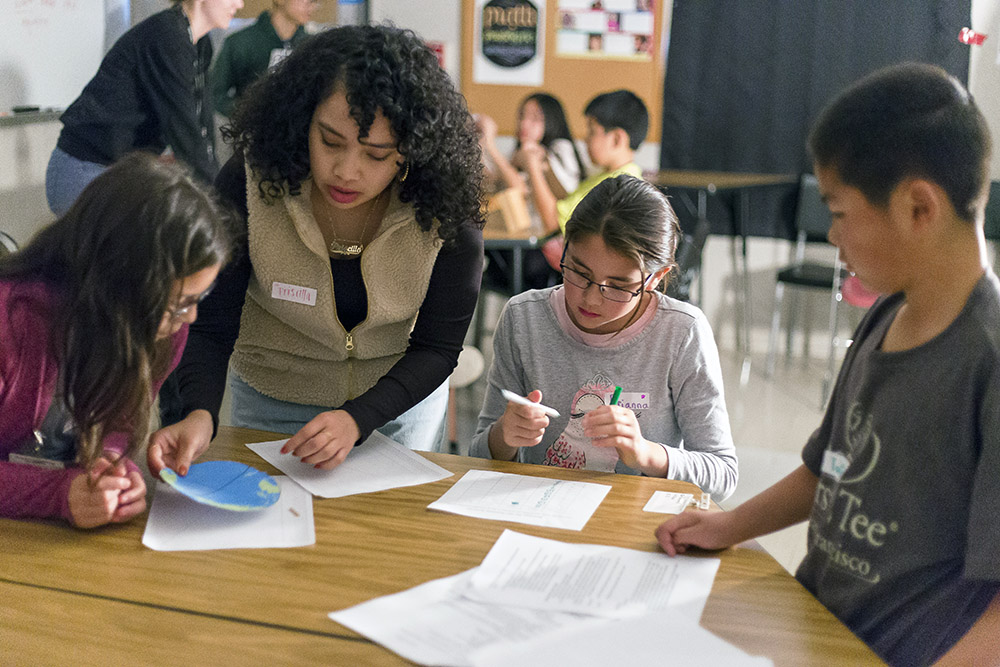
“Donating to the Graduate College of Education is an investment that has a real impact, starting with our students who are going to be changing the face of education. It's been a college that has been around for so long and has done great work in the area – building on that impact and developing new relationships and partnerships are important to invest in. ” -Dean Cynthia Grutzik
Q: Could you tell us about the college's method or philosophy of teaching?
A: Our growing focus is on inclusive teaching and learning. A great example of this is joining the preparation of special education teachers and general education teachers (elementary and secondary) because historically those teachers have taught separately and worked very separately in schools.
Another strength is that we are a progressive activist campus and we focus on culturally responsive pedagogy, which ensures that the way we teach is inclusive of cultures, languages, and abilities. When there was a huge teacher strike in Oakland in 2019, the leaders of the strike came and spoke to our students and gave them an overview of what it was all about. We want to help our students see the bigger picture of what they are joining in terms of the education profession and the activism and advocacy that they have to have for students and for making things better.
Q: How does funding from private donors support GCoE and help it to grow?
A: It makes a big difference on multiple levels. The first is scholarships, which can make all the difference in the world in students’ ability to enroll in our programs and in the kind of experience they have here.
Then we have things that we love to do but can only accomplish with larger donations, such as offering stipends to our student-teachers, who cannot work elsewhere while they are assisting in the classroom. Funding also helps our students to pay the fees for qualifying exams, which can be quite expensive. We would also like to offer a stipend to the teachers who host our student-teachers in their classes. Other universities offer this, and private donations could help us do so as well.
On-campus, our infrastructure needs upgrading. For example, we don't have any kind of a wet lab for our future science teachers to practice in. We would like to optimize that and offer better tools for our students to practice and train with.
Also, I would like to invest more in the faculty. We had a donor provide funds for faculty research mini-grants not long ago, and it was great. We were able to give out several grants and a lot of interesting curriculum work and research came out of that. Even with just a one-time sizable donation, we were able to use that in probably six different ways, which pushed the work ahead. It let us try out some new things that we hadn't tried before. Now we know they work, and we've [built them into] our own budget.
Donating to the Graduate College of Education is an investment that has a real impact, starting with our students who are going to be changing the face of education. We are a college that has been around for so long and has done great work in the area – building on that impact and developing new relationships and partnerships are important to invest in.
A donation is like a message that we care about you, we are thinking about you, and we want to help. This college feels like such a powerhouse of ideas, potential, history, and longtime commitment. It's the kind of college that does and must operate in collaboration with our local partners. We are one of the arms that outreaches from this University into the community. I think that's what's so exciting about this college, is that it's got this purpose. It's such a privilege to work with these folks.


